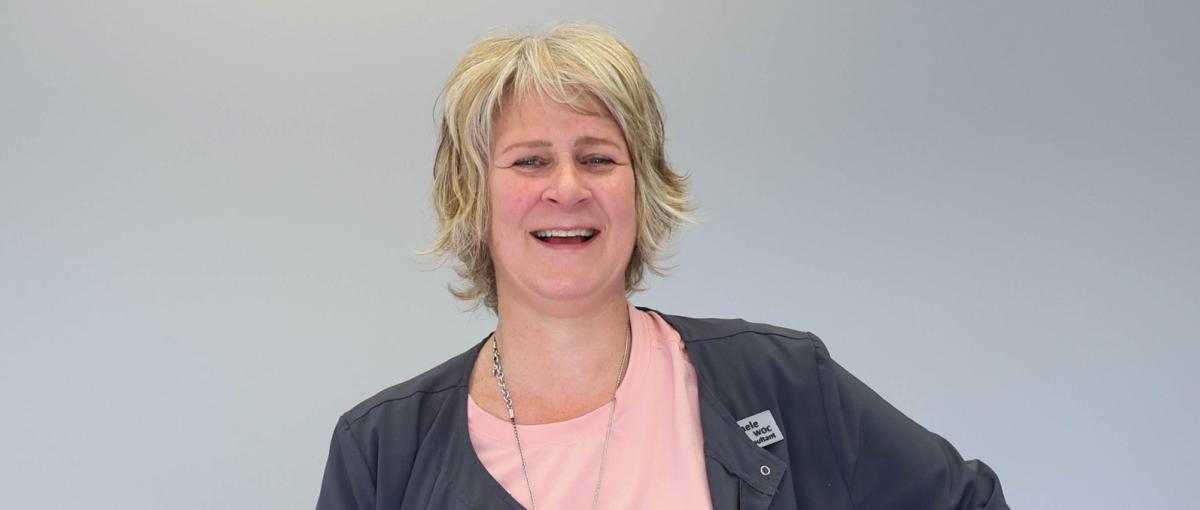Meet Michele Archutick, registered nurse, Misericordia Community Hospital

August 8, 2024
By Ben Freeland, communications advisor
Wound, ostomy and continence care is a domain of medicine that most people don’t spend much time thinking about — unless an unexpected diagnosis suddenly makes it relevant. Fortunately, there are healthcare professionals like Michele Archutick who focus on it every day and are there to help people through some of the most challenging, life-changing procedures in all of medicine.
“I think it takes a certain personality to do the work that I do,” says Michele. “I see patients who are going through pretty challenging transitions. What I do requires compassion, empathy and a willingness to give time to patients to help them through.”
Wound, ostomy and continence nursing (or WOC nursing for short) is a specialty involving the treatment of patients with acute and chronic wounds, ostomies and incontinence issues and one that requires special training. Michele, already a highly experienced nurse who had been with Covenant Health since 2000, received her WOC nursing training at the Cleveland Clinic in the United States in 2017 before moving into her current role as WOC nurse clinician at the Misericordia Community Hospital in 2018.
Michele works primarily with patients who have ostomies, also referred to as stomas, which are artificial openings created in the gastrointestinal system whereby the bowel is moved to the abdominal wall with the opening attached to a pouch or other collection device. Stomas are typically created as part of colostomies and other procedures ending with the suffix “ostomy” and are used to treat a wide range of bowel and rectal cancers as well as Crohn's disease and colitis. Modern pouching systems enable most individuals to resume normal activities and lifestyles after surgery.
“Getting an ostomy is a huge life change for a person and a lot for them to manage in their world,” says Michele. “We try to be as supportive and accessible as we can. We do their changes and provide them and their family with education, and we also have an outpatient department where we see our ostomy patients four weeks after surgery. Patients are also given our phone number so that we are available to help them if they run into trouble at home.
“We feel it’s their right to have access to an ostomy nurse, and we take that very seriously.”
Rates of colorectal and related cancers appear to be on the rise, especially among younger adults. This coupled with a growing demand for outpatient WOC care, which not all hospitals offer, is making life busier than ever for Michele’s team — with its workload increasing following the addition of another surgeon. Michele says that none of this comes at the cost of showing patients compassionate one-on-one care, which she links to Covenant Health’s stated values of compassion and respect.
“Because we offer outpatient ostomy care and many hospitals don’t, we end up seeing a lot of patients who are coming from other hospitals,” she says. “I feel that at Covenant Health patients get a deeper level of support that encompasses mind, body and soul. Our people really do go that extra mile, and I know our patients deeply appreciate it. I find my work deeply rewarding because I get so much back from my patients, who show me their gratitude every day.”